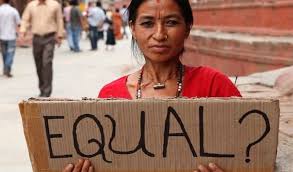Throughout her career, Astrid Aafjes (CEO and founder of SheSupplies) has worked to advance women’s rights. She worked for NGOs, public entities, and multilateral organizations after earning her law degree. She founded Women Win, a global women’s rights fund. As a founder, she saw the importance of a multi-stakeholder approach with the corporate sector as a necessary requirement for systemic change. With SheSupplies, Astrid and her team support businesses and public organizations to develop gender-responsive sourcing and procurement policies, procedures, and practices that promote gender equality in their supply chains. Here is an interview with SheSupplies CEO and founder.
What is SheSupplies all about? What started it all?
Gender inequality is a pervasive, global issue that prevents women from having an opportunity to reach their full potential at school, in their communities, and in their careers. Women face sexual harassment and discrimination in families, communities, and at work. Businesses have a huge potential to improve unfair conditions for women, support women’s empowerment, and change issues like unequal pay, etc.
Globally, women are paid less than men for the same jobs. We are in the year 2022. The good news is that the European Parliament recently passed a resolution urging the Commission to put forth EU-wide legislation on corporate due diligence and corporate accountability. The European resolution fits in perfectly with a global trend requiring businesses to conduct human rights due diligence.
I realized how procurement can be a powerful tool to promote gender equality in the supply chain. Many businesses struggle to implement gender equality into their supply chains because they are unsure of where to start, what steps to take, or who to contact. SheSupplies is here to support these businesses. At this time, SheSupplies is unique in its focus only on gender-responsive procurement and developing tools and solutions to support organizations in improving gender equality in their supply chains.
SheSupplies will fill an important gap in a growing market.
What inspired the founding of SheSupplies?
Despite decades of investment in gender equality, we are still far from achieving equal access to economic resources. I observe unequal working conditions. These are not sustainable, neither for the seller nor the buyer, and most definitely not for the women, their families, or their communities. With the mission of advancing gender equality in the supply chain, SheSupplies was founded. The organization’s vision is to create a world where men and women have equal economic opportunities and rights.
How did your vision for SheSupplies evolve?
I’ve been in the workforce for almost 30 years. Women’s capacity-building and empowerment to make better-for-them decisions have always been important to me. It is not just about empowering women; it is also about looking at the ongoing challenges they face and comprehending the root cause of this issue. It is clear that some business operations have a negative social impact. SheSupplies supports organizations to get a better understanding of their impact and increase their capacity to develop sustainable business practices. Particularly when you are working with your suppliers as a buyer, it will benefit not only the business but also the suppliers, the women, their families, and communities as a whole. Companies play a critical role in creating a sustainable world that benefits everyone.
Women’s capacity-building and empowerment to make better-for-them decisions have always been important to me.
What are Shesupplies’ top two objectives?
These are SheSupplies’ main objectives:
- To enhance gender equality in the supply chain, ensuring equal access to opportunities, resources and rights for both men and women.
- To raise awareness about the disproportionate challenges women face as entrepreneurs and as workers in the workforce and to build the capacity of organizations to take action and address, prevent and mitigate gender-specific risks.
In the upcoming years, what trends do you see?
I’m noticing a shift in focus and priorities,
- Social factors are becoming an important part of the ESG’s as more organizations realize that they cannot build a sustainable business when they ignore the people affected by their business.
- The social agenda is more and more driven by investors, shareholders and (future) employees. As a metric, all these stakeholders are looking at social components. Investors take this into account before deciding to invest in a company. And employees, particularly the younger generations, consider the company’s reputation before entering a new job.
- There is an increasing number of sustainable brands that use their sustainability as a key differentiator and by doing so inspire and force others brands to join them.
Why is gender equality important for businesses to address?
- First of all, promoting gender equality is the right thing to do and supports sustainable business. Gender equality is a key part of the SDGs.
- Secondly, research shows that there are different business benefits, including increased resilience, innovation, and productivity, among others.
- Thirdly, reputation is another important reason to enhance the gender equality performance of the organization and its supply chain.
- And last but certainly not least, compliance with international and national standards and regulations.
Promoting gender equality is the right thing to do and supports sustainable business.
If you are interested in learning more, please get in touch with us here



